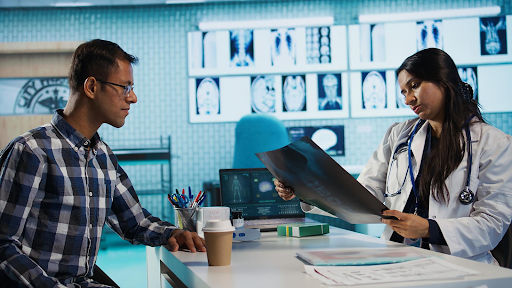Good liver health is the foundation of a healthy body. The liver plays a key role in digestion, detoxification, and energy regulation. It helps process nutrients, remove harmful substances, and regulate metabolism. Yet, hectic routines, unhealthy diets, and limited physical activity have made liver-related conditions increasingly common in Delhi. Preventive care is the simplest and most effective way to protect liver health. Through a healthy diet, regular exercise, and timely check-ups, people can maintain liver function and detect potential issues early. In a fast-moving city like Delhi, awareness and consistency can make all the difference.
Why Managing Liver Health Matters?
The liver supports several essential functions every day. It filters blood, converts nutrients into usable energy, and helps manage cholesterol levels. However, modern lifestyle habits can place excessive strain on it. Over time, this may lead to conditions such as fatty liver disease, hepatitis, or cirrhosis. Poor dietary choices, alcohol use, and hectic work routines have become common risk factors, especially in a fast-paced city like Delhi. Taking preventive action early ensures the liver remains strong and functional. People who notice symptoms such as persistent tiredness, reduced appetite, or mild yellowing of the skin should not ignore them. Early diagnosis and proper liver treatment in Delhi can prevent complications and restore balance effectively.
Dietary Habits That Support Liver Health
Food choices play a key role in maintaining a healthy liver. A clean, nutrient-rich diet allows the liver to process substances efficiently and prevents fat accumulation.
1. Add nutrient-rich and natural foods
Include plenty of fresh vegetables, fruits, and whole grains. Leafy greens, such as spinach, and cruciferous vegetables, like broccoli, contain antioxidants that support liver function. Lentils, beans, and oats provide fibre and help regulate blood sugar levels.
2. Stay hydrated and use healthy fats wisely
Water helps the liver naturally flush out toxins. Drink at least eight to ten glasses daily. Replace fried foods and saturated fats with moderate amounts of olive, mustard, or sunflower oil. These small choices can improve digestion and reduce the risk of fatty liver disease.
3. Limit sugar, alcohol, and processed foods
Refined sugar and alcohol are two of the biggest enemies of liver health. Sweets, soft drinks, and alcohol lead to fat buildup and inflammation. Avoiding them helps maintain normal liver enzyme levels.
A nutrient-balanced diet not only protects the liver but also improves overall energy and immunity. Those who eat mindfully can lower their chances of needing advanced liver treatment in the future.
Exercise and Physical Activity
Daily movement complements healthy eating. Physical activity enhances metabolism, reduces stress, and helps prevent obesity, all key factors associated with liver health.
1. Include aerobic exercises
Brisk walking, jogging, cycling, or swimming for 30 minutes a day helps maintain body weight and keeps liver fat under control. Regular aerobic activity also enhances blood circulation, supporting detoxification.
2. Add light strength training
Simple resistance exercises such as squats, planks, or light weight training increase muscle mass and improve fat metabolism. They also stabilise blood sugar, reducing the burden on the liver.
3. Be consistent and realistic
It is better to work out regularly than to over-exercise occasionally. Taking short walks after meals, stretching during breaks, and choosing stairs over lifts all add up.
Delhi residents with sedentary jobs can start small by walking during breaks or joining community fitness sessions. Regular activities keep the liver active and the body energised.
Importance of Regular Medical Check-Ups
Preventive healthcare is incomplete without medical monitoring. Many liver diseases develop silently. Regular check-ups help identify problems before symptoms appear.
1. Liver function tests (LFTs)
These simple blood tests measure enzymes and proteins that indicate how well the liver is functioning. Individuals with risk factors such as diabetes, obesity, or alcohol use should take these tests at least once a year.
2. Imaging and diagnostic scans
Ultrasound or fibroscan tests detect fat deposits, swelling, or other irregularities. Early detection allows doctors to recommend changes before the condition worsens.
3. Vaccination and lifestyle counselling
Vaccines for hepatitis A and B protect against common viral infections that can damage the liver. Regular follow-ups with healthcare professionals help maintain lifestyle discipline and reinforce preventive habits.
Timely screenings and liver treatment ensure that minor concerns are addressed before they turn serious.
Preventive Care Tips for Delhi Residents
Liver care is easier than it seems when you take small steps daily. Here are some practical tips that suit Delhi’s lifestyle:
- Plan meals: Carry healthy food to work to avoid fast food or street snacks.
- Maintain a routine: Eating meals at regular intervals helps support digestion and liver function.
- Reduce stress: Practice yoga or meditation to improve mental well-being and hormonal balance.
- Avoid self-medication: Unsupervised use of painkillers or supplements can harm the liver.
- Stay active: Take short breaks during long work hours to stretch or go for a walk.
- Get regular health check-ups: Preventive tests can detect minor changes early.
By following these steps, residents can maintain a healthy liver despite the demanding lifestyle in Delhi.
Why Prevention Matters
Preventive care is far more effective and affordable than advanced treatment. The liver has a strong ability to repair itself, but only if problems are detected early. Once damage becomes severe, treatment may become complicated and time-consuming. Healthy eating, daily physical activity, and regular health screenings not only reduce health risks but also improve overall quality of life. Being proactive about liver health is an investment in long-term well-being. Healthcare centres in Delhi offer advanced testing and consultation facilities, making preventive care accessible to everyone. Taking simple steps today can prevent major health issues tomorrow.
Conclusion
Protecting the liver does not require drastic measures. It starts with balanced meals, daily physical activity, and regular medical check-ups. These habits ensure that the liver continues to function effectively throughout life. In Delhi, where long work hours and dietary imbalances are becoming common, preventive care is essential. Awareness, consistency, and early detection can help avoid complications and promote long-term health. By making simple lifestyle changes now, people can minimise the risk of severe conditions and reduce dependence on advanced liver treatment in Delhi in the future.



